A heart transplant, also known as a cardiac transplant, is a highly sensitive procedure that involves the replacement of diseased heart with a healthy, donor heart. This treatment is mostly advised to patients with the end-stage cardiac disease or several coronary artery diseases that cannot be treated with the help of any other intervention. A heart transplant is a rare procedure that is performed at some of the most advanced and technically competent hospitals in the world.
There are several hospitals in Singapore that offer heart transplant to patients with end-stage heart disease. The country is known for its quality of medical treatment and when it comes to a heart transplant, the best hospitals in Singapore rank among the top hospitals in the world that are known to conduct this procedure in an extremely cautious and careful manner. This procedure is performed by some of the most experienced and skilled cardiac surgeons in the country who are educated and trained from globally renowned medical universities.
Singapore is one of the most cost-effective destinations for heart transplant among other popular medical tourism destinations. It is estimated that the heart transplant cost in Singapore is as much as 80 percent less than what it costs in the US. The cost of heart transplant in Singapore, however, depends on several factors, including the cost of surgery, surgeon’s fees hospital charged, the cost of medicines and other consumables, and whether the procedure is conducted along with lung transplant.
| Country | Minimum Cost | Minimum Local Currency | Maximum Cost | Maximum Local Currency |
|---|---|---|---|---|
| India | USD 55000 | INR 4573250 | USD 65000 | INR 5404750 |
Treatment cost
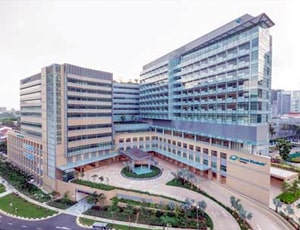
Mount Elizabeth Novena Hospital located in Novena, Singapore is accredited by JCI. Also listed below are some of the most prominent infrastructural details:
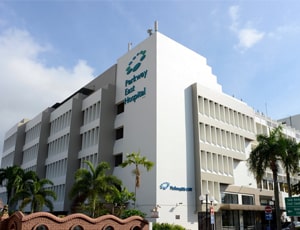
Parkway East Hospital located in Joo Chiat Pl, Singapore is accredited by JCI. Also listed below are some of the most prominent infrastructural details:
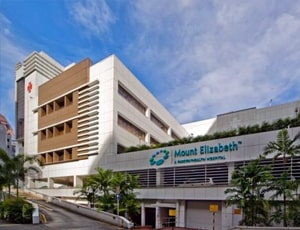
Mount Elizabeth Hospital located in Singapore, Singapore is accredited by JCI. Also listed below are some of the most prominent infrastructural details:

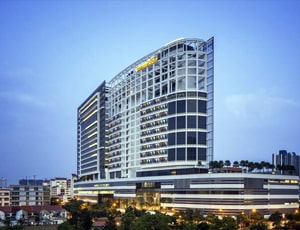
Apart from in-detail treatment procedures available, Farrer Park Hospital located in Connexion, Singapore has a wide variety of facilities available for International Patients. Some of the facilities which are provided by them are Accommodation, Airport Transfer, Choice of Meals, Interpreter, SIM, TV inside room. Also listed below are some of the most prominent infrastructural details:
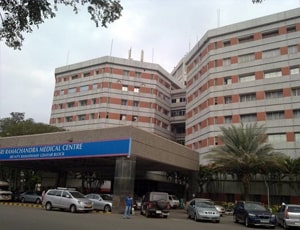
Types of Heart Transplant in Sri Ramachandra Medical Centre and its associated cost
| Treatment Option | Approximate Cost Range (USD) | Approximate Cost Range (INR) |
|---|---|---|
| Heart Transplant (Overall) | 50617 - 91784 | 4165328 - 7462887 |
| Standard Heart Transplant | 50768 - 71140 | 4164039 - 5847761 |
| Advanced Heart Transplant | 70777 - 91383 | 5851997 - 7499497 |
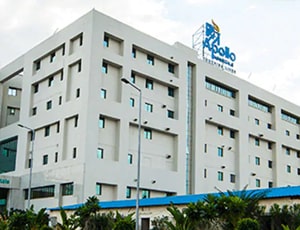
Types of Heart Transplant in Apollo Hospital and its associated cost
| Treatment Option | Approximate Cost Range (USD) | Approximate Cost Range (INR) |
|---|---|---|
| Heart Transplant (Overall) | 55980 - 100944 | 4677348 - 8126793 |
| Standard Heart Transplant | 55958 - 80177 | 4691395 - 6553047 |
| Advanced Heart Transplant | 80129 - 101927 | 6462163 - 8160252 |
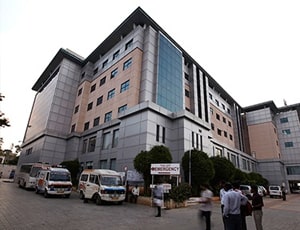
Types of Heart Transplant in BGS Gleneagles Global Hospitals and its associated cost
| Treatment Option | Approximate Cost Range (USD) | Approximate Cost Range (INR) |
|---|---|---|
| Heart Transplant (Overall) | 56733 - 99701 | 4645525 - 8122047 |
| Standard Heart Transplant | 55510 - 80222 | 4512330 - 6368839 |
| Advanced Heart Transplant | 79146 - 102928 | 6362382 - 8133088 |

Types of Heart Transplant in Indraprastha Apollo Hospital and its associated cost
| Treatment Option | Approximate Cost Range (USD) | Approximate Cost Range (INR) |
|---|---|---|
| Heart Transplant (Overall) | 57212 - 99909 | 4619000 - 8201299 |
| Standard Heart Transplant | 57370 - 79155 | 4529037 - 6344439 |
| Advanced Heart Transplant | 77756 - 102218 | 6414202 - 8339047 |
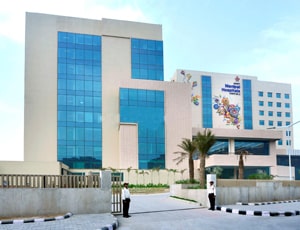
Types of Heart Transplant in Manipal Hospital, Dwarka and its associated cost
| Treatment Option | Approximate Cost Range (USD) | Approximate Cost Range (INR) |
|---|---|---|
| Heart Transplant (Overall) | 50671 - 91179 | 4159565 - 7482576 |
| Standard Heart Transplant | 50736 - 71379 | 4144668 - 5842026 |
| Advanced Heart Transplant | 70786 - 91369 | 5812927 - 7524951 |
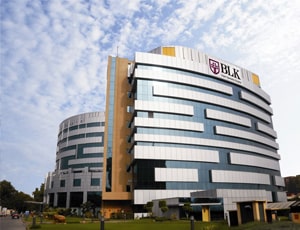
BLK-Max Super Speciality Hospital located in New Delhi, India is accredited by NABL. Also listed below are some of the most prominent infrastructural details:
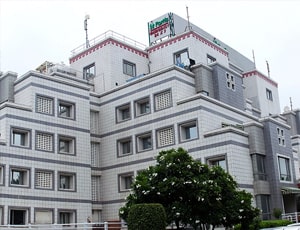
Types of Heart Transplant in Fortis Flt. Lt. Rajan Dhall Hospital and its associated cost
| Treatment Option | Approximate Cost Range (USD) | Approximate Cost Range (INR) |
|---|---|---|
| Heart Transplant (Overall) | 50673 - 91061 | 4164390 - 7515555 |
| Standard Heart Transplant | 50561 - 71346 | 4147562 - 5844489 |
| Advanced Heart Transplant | 70714 - 91206 | 5799392 - 7498223 |
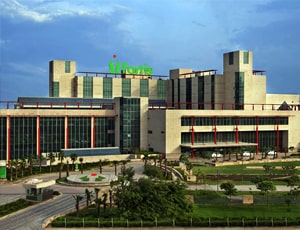
Fortis Memorial Research Institute located in Gurugram, India is accredited by JCI, NABH. Also listed below are some of the most prominent infrastructural details:
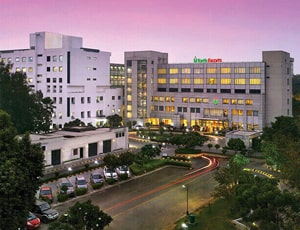
Types of Heart Transplant in Fortis Escorts Heart Institute, Okhla and its associated cost
| Treatment Option | Approximate Cost Range (USD) | Approximate Cost Range (INR) |
|---|---|---|
| Heart Transplant (Overall) | 56714 - 102895 | 4511472 - 8312711 |
| Standard Heart Transplant | 56810 - 78366 | 4640573 - 6569309 |
| Advanced Heart Transplant | 79700 - 103415 | 6379522 - 8245810 |
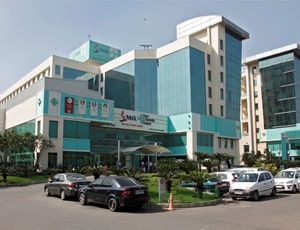
Max Super Speciality Hospital is a multi- super speciality intensive care centre, which has an excellent team of doctors, most advanced infrastructure of global standards in services and diagnosis, best practices for treatment, and the latest technology of machinery.
Infrastructure & Facilities:
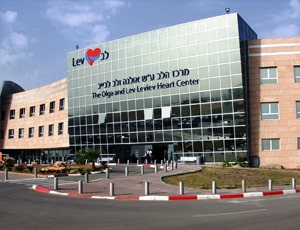
Sheba Medical Center located in Tel-Hashomer, Israel is accredited by JCI. Also listed below are some of the most prominent infrastructural details:
Heart transplantation is necessary for patients with a diseased heart, especially when their heart function fails to improve despite undergoing surgeries and prolonged medication use. During this procedure, the patient's heart failure is replaced with a fully functional one from a brain-dead donor who is being kept alive on life support. Despite its life-saving potential, heart transplant surgeries remain rare due to the scarcity of suitable donors, exacerbated by concerns, such as aesthetic reasons, which deter many families from consenting to organ donation. Although heart transplant surgery is a major procedure, the post-operative survival rate is generally favorable, contingent upon the quality of post-surgical care.
This surgery is typically reserved for patients experiencing heart failure resulting from various conditions, including cardiomyopathy, previously failed heart transplants, coronary artery disease, cardiac valve disease, congenital heart defects, amyloidosis, and abnormal heart rhythms. Furthermore, heart transplant surgeries may involve the transplantation of other organs, such as the kidneys, liver, or lungs, depending on the patient's specific needs. However, not all heart patients qualify for transplantation; those with a history of cancer, a major illness that would significantly reduce life expectancy, active infections, advanced age, or unhealthy lifestyle habits are generally deemed unsuitable candidates for heart transplant surgery.
Heart transplant surgery is an extensive open-heart procedure that typically lasts several hours, especially if the patient has undergone previous heart surgeries, which can make the procedure more complex and time-consuming. Before the surgery, the patient is given medication to induce general anesthesia, ensuring unconsciousness throughout the procedure. Surgeons then connect the patient to a heart-lung bypass machine to maintain oxygen-rich blood circulation.
During the surgery, the patient will receive general anesthesia, and then an incision is made in the chest, and the chest bone is separated, allowing access to the heart. The diseased heart is carefully removed, and the donor's heart is transplanted into place. Major blood vessels are then connected to the donor's heart. In many cases, the new heart begins beating once blood flow is restored, although sometimes an electric shock is necessary to ensure proper heart rhythm.
After the surgery, the patient receives pain management medication and may require a ventilator to assist with breathing. Chest tubes are inserted to drain fluids from around the lungs and heart. Fluids and drugs are also administered intravenously to support the patient's recovery.
Recovery after heart transplantation surgery is slow. You will be required to visit the surgeon for frequent follow-ups. They will advise you to undergo a series of tests every time you visit, including echocardiograms, electrocardiograms, and blood tests. You will also be required to undergo heart biopsies to check for signs of organ rejection. A pathologist will look into a tiny heart tissue under a microscope during a biopsy.
Additionally, you will be required to make several long-term adjustments to your schedule after you’ve had a heart transplant. You will be required to take immunosuppressants and make adjustments for medications. You will need intensive emotional support during cardiac rehabilitation. Therefore, make sure to have your near and dead ones around you during the recovery phase.
Patients will also be advised to make several adjustments to their lifestyle to speed up recovery. This includes exercise guidelines, a healthy diet, sunscreen use, and tobacco consumption.
Ask your healthcare adviser for the best multiple options and choose the one that meets your expectations
Different hospitals have different pricing policy when it comes to the cost of Heart Transplant in Singapore. Some of the best hospitals for Heart Transplant offer a comprehensive package that covers the end-to-end expenses related to investigations and treatment of the patient. The treatment cost usually includes the expenses related to hospitalization, surgery, nursing, medicines, and anesthesia. A prolonged hospital stay due to delayed recovery, new diagnosis and complications after surgery may increase the cost of Heart Transplant in Singapore.
There are many hospitals that perform Heart Transplant in Singapore. For quick reference, the following are some of the leading hospitals for Heart Transplant in Singapore:
After discharge from the hospital, the patient has to stay for another 45 days in the country for complete recovery. During this time, the patient undergoes medical tests and consultations. this is to ensure that the treatment was successful and the patient us safe to return.
One of the topmost destinations for Heart Transplant is Singapore. It has a variety of accredited hospital, affordable cost of treatment and some of the best medical fraternity. Some of the other destinations that are popular for Heart Transplant include the following:
Apart from the cost of Heart Transplant, the patient is also required to pay additionally for daily meals and guest house accommodation. These charges may vary starting from USD$ 60 per person.
Some of the popular cities in Singapore that offer Heart Transplant include the following:
The average duration of stay at the hospital after Heart Transplant is about 10 days for proper care and monitoring. The patient is subjected to several biochemistry and radiological scans to see that everything is okay and the recovery is on track. After making sure that patient is clinically stable, discharge is planned.
The average rating of hospitals for Heart Transplant in Singapore is 4.2. This rating is automatically calculated on the basis of several parameters such as the infrastructure of the hospital, quality of services, nursing support and other services.
There are about 4 Heart Transplant hospitals in Singapore that are best known for their services. Apart from good services, the hospitals are known to follow all standard and legal guidelines as dictated by the local medical affairs body or organization.
Heart transplant in Singapore is mostly renowned because of the advanced technologies used. The procedure, though complex, is performed by globally recognized surgeons who are celebrated for their in-detail analysis and implementation of necessary procedures. The procedures followed in heart transplant surgeries are:
After changing into the operation gown, the candidate is provided with IV lines or intravenous lines on the upper limb for injecting IV fluids and medications.
Catheters are provided and attached to the wrist, collarbone, neck, or groin region in order to closely observe the blood circulation rate. This also facilitates the testing of blood samples readily.
A Foley catheter is inserted into the urinary bladder for containing the urine. For draining the gastrointestinal fluids, a separate tube is attached to the stomach.
The candidate is shaved or clipped of any chest hair, and the patient is then subjected to anesthesia.
The candidate is made to artificially breathe via a ventilator, the tube of which is attached to the lungs.
The blood pressure, blood oxygen, and the heart rate is monitored by the anesthesiologist.
After sterilizing the skin, a vertical incision is made on the skin right above the sternum, stretching from an inch below the Adam's Apple to an inch before the navel.
The sternum is symmetrically slit vertically and separated to expose your heart.
Tubes mimicking the blood veins and arteries are supplied and connected to the cardiopulmonary bypass device which stores the blood for the time being. The affected heart is then removed keeping the pulmonary vein and the posterior wall of the artery intact.
Once the donor's heart is sewed in position, the device gradually diverts the blood back to the body and the tubes are removed.
The heart may start beating naturally or may be triggered by shock paddles which act as the pacemaker. The beats are then followed by the SA node and picked up by the AV node normally.
The donor's heart is closely monitored for sometime henceforth which, the sternum and the skin are stitched back to position gradually, and bandaged.
The tubes and catheters are also removed.
Heart transplant in Singapore is performed after verifying the candidacy of the patient carefully. The determining factors that make an individual best candidate for heart transplant surgery are:
Terminal stage or minimum hopes of survival with the diseased heart.
Failure of all possible prior medications and treatments that have been implemented.
The candidate shows adequate health apart from the heart anomaly.
The candidate is free from life-threatening or long-term illness or terminal illness.
The candidate is capable of adhering to timely post-surgery treatments and medical supervision.
The hospitals offering heart transplant in Singapore have been serving mankind for decades. These hospitals are supremely decorated with cutting-edge technology for providing extreme efficiency. Paired with globally acclaimed surgeons, the hospitals are furnished with multispecialty facilities and luxurious stay.
Mount Elizabeth Hospital
Mount Elizabeth Novena Hospital
Parkway East Hospital
The cost of a heart transplant is determined by the number of laboratory tests, transportation cost, organ storage, medical facilities and a lot more. Heart transplant cost in Singapore is quite affordable as compared to the major countries like the USA and the UK. While the latter is reported to charge approximately $1,40,000, Singapore offers an affordable rate of USD $56,827 on average.
Post-surgery, the candidate is observed in the hospital for 10 days to two weeks depending on the complexity. Hence, they are also advised to remain within thirty minutes of driving radius from the hospital for approximately five to six months. However, the candidate is said to completely recover after four to six or above months depending on the complications.
In spite of affordable heart transplant costs in Singapore, the quality of the heart of the medical facilities is never compromised. With the help of topmost surgeons and advanced technology, the heart transplant survival rate in Singapore is estimated to be 80% in the primary stages, with candidates surpassing 15-20 years of added lifespan.
Heart transplant in Singapore shall be considered because it is:
Affordable compared to other countries providing similar facilities
Performed by proficient surgeons with decades of experience
Furnished with progressed and up-to-date technology
Facilitated with unparalleled medical assistance
Paired with extreme hospitality and through observation.
Even though almost all operations project some risk factors, the ones attached to heart transplants should be closely monitored. Hence, the possible risk factors are:
Blood loss during or post-operative measures
Infection, even after regular administration of anti-infective drugs
Formation of blood clots which may lead to cardiac arrest or stroke
Breathing difficulty
Thickening or hardening of the arteries known as Coronary Allograft Vasculopathy
Rejection of the donor’s heart